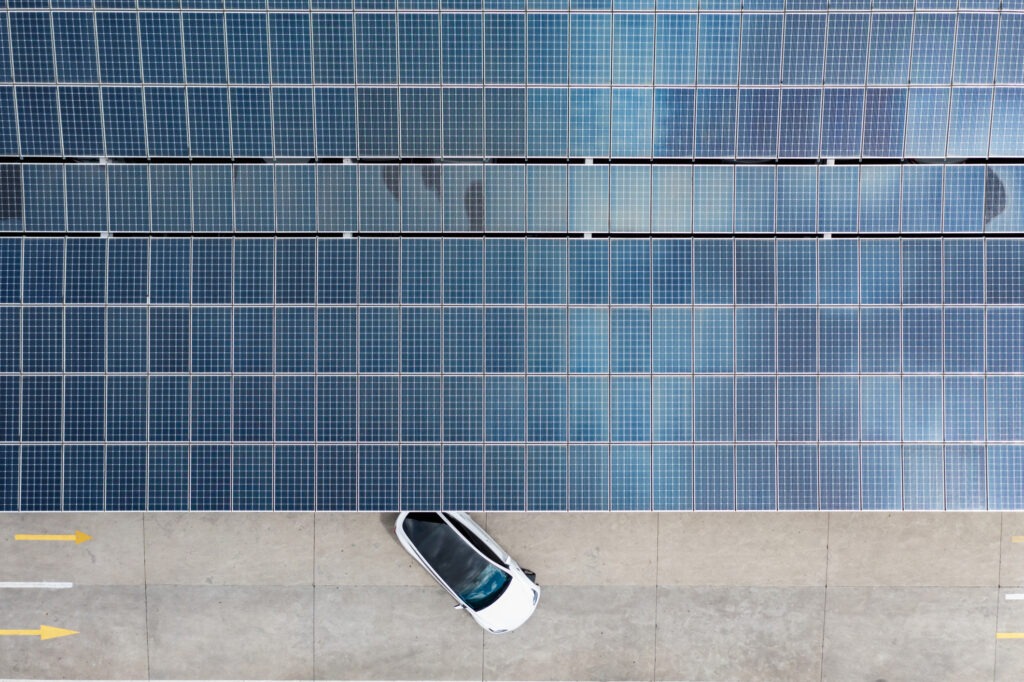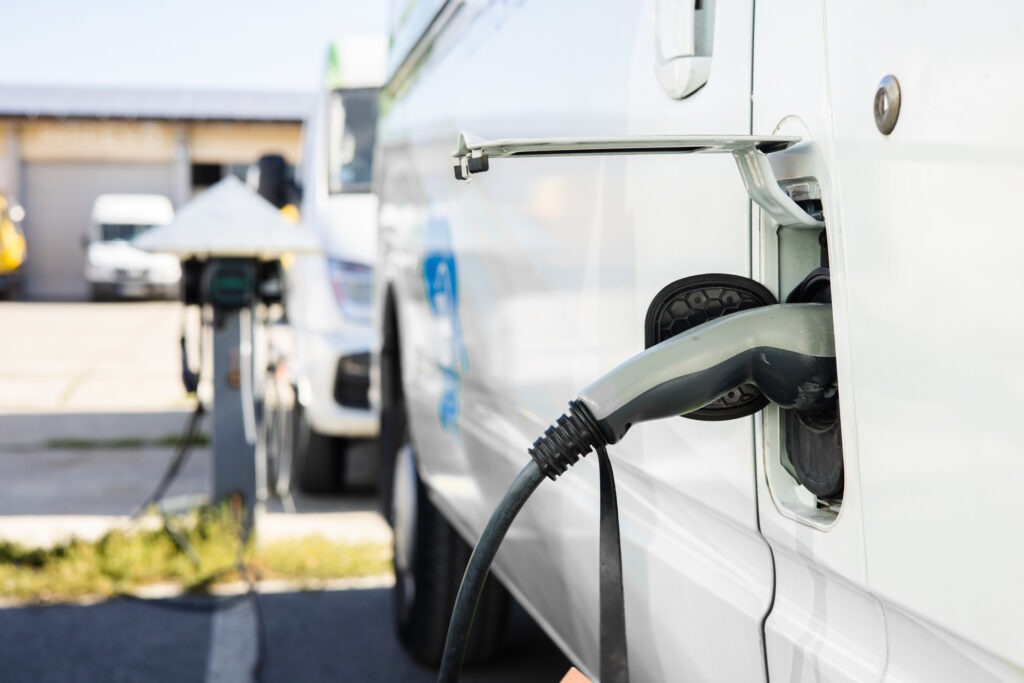The drive for sustainability in a challenging automotive market
14 March 2023

Carmakers have set out sustainability goals to slash greenhouse gas emissions, but are they on track to hit these targets? Rebeka Shaid, Autovista24 journalist, investigates.
Some experts believe the automotive industry could struggle to reach emissions reductions compatible with the 2015 Paris Climate Agreement, which aims to limit global warming to 1.5 degrees Celsius.
Recent analysis from consultant firm Kearney, commissioned by electric-vehicle (EV) manufacturers Polestar and Rivian, found that the automotive industry needs to do more or risk overshooting the 1.5-degree limit by 75% come 2050. Both EV makers flagged that electrification alone will not be enough, urging other manufacturers to set a clear end date to the global sale of new fossil fuel-powered cars.
But shifting to electromobility presents its own challenges since mining for raw materials continues to cause pollution, as well as the energy needed to produce batteries. Decarbonisation needs to be prioritised, with Polestar and Rivian calling on carmakers to drastically slash emissions along the supply chains. This could include switching to low-carbon materials and investing in renewable energy.
Remaining greenhouse gas emission budget by year

‘Car companies may be on different paths when it comes to brand, design, and business strategies, and some will not even admit that the road to the future is electric,’ said Fredrika Klarén, Polestar’s head of sustainability.
‘I believe it is, and that the climate crisis is a shared responsibility. There is a clear cost to inaction, but there is also a financial opportunity for innovators who find new answers to the challenges we face,’ she said.
Lawsuits impact sustainability credentials
Carmakers have recognised the need to act, redirecting resources to make operations climate-neutral and increase their sustainability efforts. However, the image of some companies remains tarnished by legal action, especially related to diesel engines.
In several countries such as the UK, lawsuits regarding emissions cheat devices used in the Dieselgate scandal are still ongoing. Meanwhile, in South Korea, an anti-trust regulator intends to impose a fine on three German carmakers ‘for colluding to curb emissions-cleaning technology’ for their diesel vehicles, Reuters reports. This follows the revelation of a cartel, which led to large fines imposed by the European Commission in 2021.
Environmental organisations have also brought forward climate lawsuits against major car manufacturers, including Volkswagen (VW), BMW, and Mercedes-Benz. In a recent case, Environmental Action Germany (DUH) sued BMW with the aim of forcing the company to phase out the sale of new internal-combustion engine (ICE) cars by 2030.
Other carmakers have vowed to go all-electric by the end of the decade. Volvo serves as a prime example of this, but BMW is more hesitant regarding its electrification strategy. The carmaker has promised that at least half of global group deliveries will consist of battery-electric vehicles (BEVs) by 2030. At the same time, the company is calling for ‘technology openness’ as it continues to back both synthetic fuels and hydrogen fuel cells.
DUH argues that corporations with a CO2 footprint larger than that of national states ‘have a duty of care’ to ensure climate protection. Although the climate case against BMW was rejected by the judge, the court acknowledged the permissibility of the lawsuit. So, the argument could theoretically be successful in the future if climate protection goals are not met.
However, DUH is planning to appeal, hoping for another hearing in 2023. Whether the NGO will succeed with its appeal remains to be seen. A similar lawsuit against Mercedes-Benz for ‘exacerbating climate change’ was dropped by the Stuttgart district court last year.
‘We welcome the judgement of the Munich regional court, which dismissed DUH’s lawsuit as unfounded. The judgement follows the jurisprudence of the regional court of Stuttgart, which also denied corresponding claims in a lawsuit with the same content against another manufacturer,’ BMW said in a statement to Autovista24.
‘The Munich regional court had already made clear in the oral proceedings that there are high hurdles for climate claims against companies. The debate on how to achieve climate targets must take place in the political process, through the democratically legitimised parliaments, but not in the courtroom,’ the carmaker added.
Greenpeace also failed with legal endeavours to stop VW Group from selling new ICE cars by 2030. A German court dismissed the case in mid-February, with the carmaker saying ‘it was the wrong party to sue.’
‘The Volkswagen Group stands by its responsibility to reduce CO2 emissions in all its areas of activity as quickly as is entrepreneurially possible. Volkswagen stands for climate protection and rapid decarbonisation of the transport sector, but it cannot meet this challenge alone. The transformation can only succeed if the necessary framework conditions are created: through government regulation, technological development and user behaviour,’ the carmaker told Autovista24.
Sustainability goals in EV push
In these instances, both carmakers reiterated how important sustainability is to their corporate strategies. While warnings persist that vehicle manufacturers could fall short on climate goals, these companies are taking steps to improve their sustainable practices.
Many carmakers are preparing themselves for an electric future, spending billions on electrification. Mercedes-Benz wants to go all-electric by 2030 ‘where market conditions allow’, with a clear focus on using ‘cleaner’ EV batteries. The German luxury brand is in the middle of setting up a battery recycling factory in its domestic market, aiming to increase the recycling rate to more than 96%.
VW Group is also planning to recycle up to 97% of the raw materials found in battery packs, with other legacy carmakers eager to re-use, remanufacture, and recycle battery content.
But manufacturers are also keen to cooperate with clean-tech companies capable of supplying sustainably sourced materials, such as lithium. Vulcan Energy promises to obtain the metal sustainably and locally, in the heart of Europe, with the firm having bagged major supply deals with European vehicle manufacturers.
Another focal point is climate neutrality, with carmakers already operating or planning to run CO2-neutral manufacturing plants. Many sites rely on green power from renewable energy sources. In fact, smart factories have made sustainability a priority. A new BMW facility in Hungary looks set to become the world’s first automotive plant to completely dispense with the use of fossil fuels in its production processes.
Recycling moves to the interior
Carmakers are also raising the amount of recycled materials in their vehicles. This does not only apply to reusing key manufacturing materials such as steel and aluminium, but also recycled PET bottles, nylon yarn, and fishing nets. Mercedes-Benz wants to increase its share of secondary raw materials in its car fleet by an average of 40% by 2030, with others, including Stellantis, aiming for a minimum target of 35%.
Meanwhile, VW is no longer using chrome for trim on doors, instrument panels and steering wheel clips in the ID.Buzz, as part of plans to increase its sustainability ratio. The company is introducing more recycled materials across its electric ID. family, including recycled marine debris.
Sustainable materials such as bamboo fibres are also of growing interest to carmakers, while many are also exploring animal-free leather alternatives based on cactus and mushroom mycelia as well as plastic alternatives. This is significant, as experts estimate that by 2040 around 60% of automotive-industry emissions will come from materials used in production. Notably, bio-based materials can help minimise weight and increase both energy and emissions savings.
One trend that becomes clear from these efforts is that car manufacturers are taking action by using resources more responsibly – be it energy, materials, or cutting down on water usage during production as Audi plans to do. While carmakers have made varying degrees of progress towards climate targets, these companies appear to recognise the need to reduce the mark they leave on the planet.



